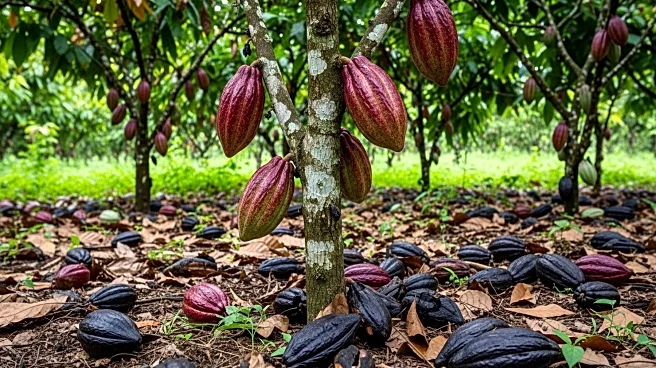What's Happening?
Cameroon's cocoa industry is facing significant challenges due to the spread of black pod disease, a fast-spreading fungal infection exacerbated by recent heavy rainfall. This disease, which thrives in wet conditions, is impacting cocoa yields in the country, the world's fifth-largest cocoa producer. The situation is worsened by the influx of counterfeit agrochemicals from neighboring Ghana and Nigeria. Black pod disease, also known as brown rot, attacks cocoa pods, causing rapid decay and significant crop loss. This adds to existing issues caused by the cacao swollen shoot virus, further threatening cocoa production.
Why It's Important?
The spread of black pod disease poses a serious threat to the global cocoa supply chain, potentially leading to increased cocoa prices and economic strain on farmers. Cameroon, a key player in the cocoa market, faces reduced yields, impacting local economies and international chocolate production. The situation highlights the need for effective disease management and climate adaptation strategies in agriculture. As climate change exacerbates conditions favorable to such diseases, the cocoa industry must innovate to protect crops and ensure sustainable production.
What's Next?
Efforts to combat black pod disease may include increased research into disease-resistant cocoa varieties and improved agrochemical regulations to prevent counterfeit products. International collaboration may be necessary to develop effective strategies for disease management and climate adaptation. Stakeholders in the cocoa industry, including farmers, governments, and chocolate manufacturers, may need to invest in sustainable practices to mitigate the impact of such diseases.










